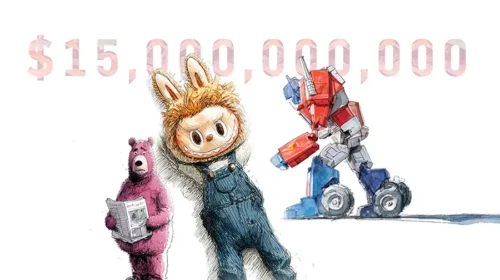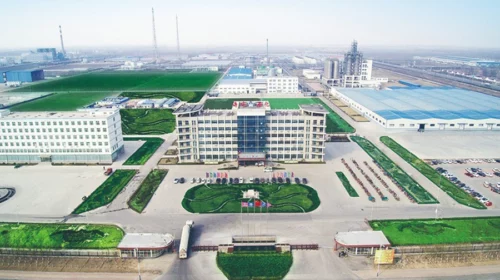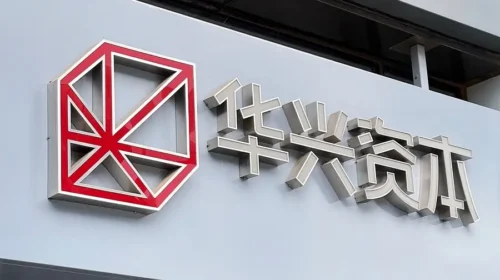CHINA BULLETIN: All About Covid

Welcome to the latest Bamboo Works China Bulletin, where we recap the top China macro, industry and company developments from the past week and give you our spin on what it all means. In this week’s issue China stares at a Covid Christmas, while a major auto show drives on in Guangzhou. On a scale of 1 to 10, we give the week a 6 for offshore-listed China stocks.
Doug Young, Editor in Chief
MACRO
All About Covid
The headlines these last two weeks have been all about Covid, or more specifically China’s 180-degree turn with the sudden scrapping of its nearly 3-year-old “zero Covid” policy. Following the shift, Covid cases have skyrocketed in Beijing and Guangzhou, the two cities where the latest flareups were worst before zero Covid was scrapped. Shanghai is starting to follow.
One of the latest headlines last week cited experts saying infections should peak in early 2023, which seems pretty par for the course based on experience of other countries. Economists are also revising their estimates for 2023 to factor in the absence of Covid shackles on China’s economy. Morgan Stanley was a case in point, raising its forecast to 5.4% growth next year from a previous 5%.
More Indicator Gloom
The train of gloomy economic indicators continued to rumble through the China station last week, led by sharply slowing industrial output growth and a 5.9% drop in retail sales in November. The bevvy of bad data, which was mostly worse than analysts’ already-weak expectations, also included a 9.9% drop in car sales for the month, reversing several months of gains.
The indicators have grown increasingly dismal since September as Covid flareups led to renewed lockdowns and other economy-stifling control measures after a relatively Covid-free summer. December will probably look gloomy as well since the recent scrapping of strict Covid controls is unlikely to have any major impact until after the Lunar New Year holiday.
China Stocks Hit Interest Rate Speed Bump
Offshore-listed China stocks took a breather last week, pausing from a rally that has seen many shares post strong double-digit gains since the end of October. The Hang Seng China Enterprises Index fell 2.9% during the week, while the broader Hang Seng Index fell by 2.3%. Over in New York, the iShares MSCI China ETF fell 2.9%.
One of the week’s biggest items saw the U.S. Public Company Accounting Oversight Board give a very positive review of its initial audits of U.S.-listed Chinese firms, lowering the risk of forcible de-listing of the more than 200 U.S.-listed Chinese firms. But investors were more focused on the Fed’s 50 basis point rate hike, at least based on broad declines for the China-focused indexes that day.

INDUSTRY
The Show Must Go On
A quickly emerging theme in China’s Covid strategy shifts says “the show must go on,” no matter how many people are infected. That’s certainly the case with the Guangzhou Auto Show, one of China’s three main annual auto shows, which has been rescheduled and will now take place from Dec. 30 to Jan. 8, more than a month after its originally scheduled Nov. 18 to Nov. 27 dates.
Guangzhou was one of the worst affected cities in the latest Covid flareups, and was grappling with everything short of a citywide shutdown before the sudden cancellation of zero Covid. So, the fact that it will be staging such a major event so soon after its darkest hour really does feel like a slightly symbolic way for China to say “we’re learning to live with the virus.”
Year of the Traveler?
In a development that’s been expected for quite some time, China’s travel industry is showing sudden signs of new life after more than two years in deep freeze. Figures from aviation data company VariFlight show that domestic flights in China surged to around 65% of pre-pandemic levels last week, a huge jump from just 22% at the end of November.
The data also shows a similar surge in bookings for the upcoming Lunar New Year holiday, which begins on Jan. 22. Many Chinese haven’t celebrated this traditional family holiday at home for the last two years, so it’s no surprise that many are finally planning to make the trip. We expect travel will keep hopping ahead at a brisk pace in the upcoming Year of the Rabbit.
BYD Cruises Past VW
First it passed Tesla earlier this year to become China’s biggest electric car seller. Now BYD, the company backed by Warren Buffett, is set to pass Volkswagen as China’s best-selling car brand in the month of November. BYD’s sales rose 83% in the first four weeks of the month to 152,863 vehicles, outpacing VW’s sales of 143,602.
We don’t want to rain on BYD’s parade, as the company is certainly one of China’s biggest car success stories. But we should point out that BYD gets almost all of its sales from new energy vehicles, which have enjoyed strong government support in the last two years. Much of that is set to end this year, which is probably a major factor behind BYD’s sudden big year-end sales jump.

COMPANY
TikTok Counts Down the U.S. Clock?
TikTok, the world’s most popular – and also possibly most controversial – social media app, made headlines last week after three U.S. lawmakers introduced a bill that could potential ban the service in the country. One of the three was Sen. Marco Rubio, whose name has appeared on a number of bills targeting Chinese companies over the past couple of years.
To the best of our knowledge, none of Rubio’s bills have actually come anywhere close to becoming real laws, and this seems like more grandstanding to look tough on China. But we should also remember that Donald Trump took on TikTok during his presidency, which does show there are some powerful voices against the company due to its China roots.
Abbott’s Losing China Formula
Abbott Laboratories is calling it quits in China, at least for its signature baby formula products. The company’s Shanghai trading arm announced the move last week, citing changing consumer demand and competition.
We suspect that Abbott may have also suffered from an image problem in China that led to its decision. Safety problems at one of its U.S. facilities earlier this year led to a major shortage of infant formula in the U.S. That led China’s customs to warn local consumers to avoid imported Abbott formula that may have been linked to the problem.
Longfor Gets Lifeline
We can’t go an entire week without at least one headline from China’s embattled property market. This week that comes from Longfor, one of the country’s many developers hamstrung by heavy debt. Last week the company got a lifeline from the Bank of China, which offered the company 700 million yuan in offshore loans.
China has mostly propped up these struggling developers by providing assistance at home. But it’s increasingly worried about their billions in offshore dollar-denominated bonds. As that happens, it is instructing both policy and big state-owned commercial banks to provide financial assistance both at home and abroad in a bid to support the market.
AND FROM THE PAGES OF BAMBOO WORKS
| Nayuki or Naixue? Last week we looked at Nayuki, one of China’s leading bubble tea chains, which is quietly rebranding itself to its more Chinese-sounding name Naixue. The shift came to public attention after a social media user noticed new signage at her local store, and our own checks revealed the company has been making the shift over the last few months. The old Nayuki name looks and sounds quite Japanese, while the newer Naixue is very Chinese. This kind of Japanese imitation used to be quite popular among Chinese chains, which hoped to boost sales by association with Japan’s reputation for quality. But the practice has slowed this year after a series of high-profile attacks by Chinese nationalists critical of the practice. |
| Xpeng’s Identity Crisis Last week we also cast our spotlight on Xpeng, another Chinese company in the midst of its own identity crisis. In this case, the electric vehicle maker is stuck in a sort of pricing no man’s land that is somewhere between premium vehicles and more mainstream ones. The result is that consumers aren’t too smitten with Xpeng’s vehicles these days, reflected in the latest data that show its sales tumbled 63% in November. The company looks increasingly likely to become one of the first major players to get squeezed from the overcrowded China EV market, which is showing signs of a correction in 2023 after two years of explosive growth. |






